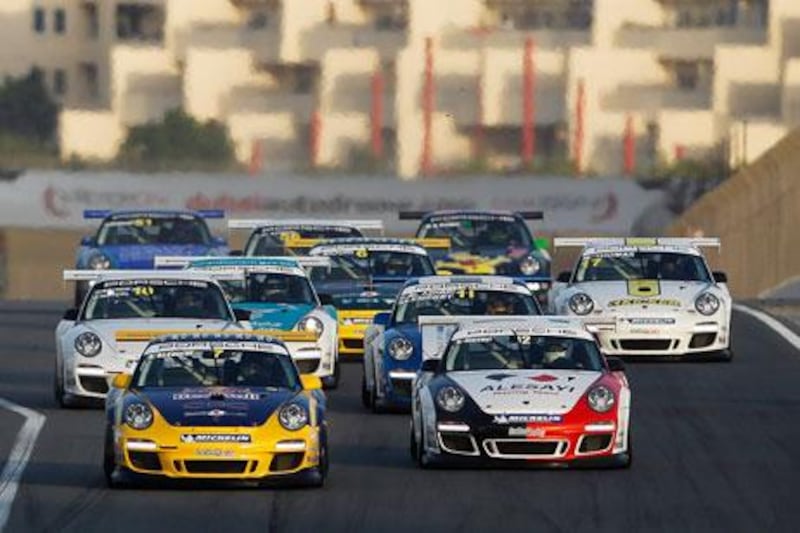DUBAI // Richard Birch describes the safety preparations at Dubai Autodrome as being "like a military operation".
The track and venue executive at the circuit said nothing is left to chance.
For last weekend's Dubai Motorsport Festival there were 16 medical staff, many of them brought in from the nearby Rashid Hospital trauma centre. The track's medical centre, built to FIA standards, includes a resuscitation room, an X-ray department and a burns unit. Any patients can be transported to hospital in six minutes in a helicopter and 20 minutes by ambulance.
More than 100 volunteer marshals were in attendance, they arrived at the venue at 7am, two hours before the first car left the pit lane. The volunteers helped man 26 marshal points around the circuit while there were 11 fire-tender areas.
At two separate points, on the start-finish line and also on the back straight of the 4.2km international circuit, an ambulance, an extrication team, a medical car and a recovery truck sat trackside in readiness should there have been a crash or one of the cars had a problem which required rapid assistance.
There were four ambulances and three doctors on site for the weekend to ensure full medical coverage.
"We have to run like this as we have to meet FIA [Federation Internationale de l'Automobile] standards. There is a FIA steward here, at every event we hold, and we have to ensure that the track and our safety standards remain high at all times," Birch said. "Nothing is left to chance when it comes to safety."
Drivers are given a safety briefing before they race. They are given a map well in advance detailing all the marshal and medical points around the track.
"It can be useful for them as if they have a problem and need to stop out on the circuit, depending on where they are, it may be worth them driving on another 100 metres and stopping at a marshals post so they can get immediate attention."
Before the cars are allowed out the circuit has to be deemed clear by Fraser Martin, the clerk of the course. Half an hour before the start of the first race, Martin and Michael Prophet, one of the race stewards for the meeting, drove around the circuit in a course car.
They inspected the track, checked the gates in the fencing around the course were shut and made sure that every marshal's radio was working so they were all in contact with race control.
They did this through a flag check with the marshals at each point waving one of the various safety or caution flags that Martin had asked to see.
"We are ready to deal with anything that happens, but the ideal weekend is a quiet one where there is nothing to do," Wayne Bishenden, the Autodrome's senior circuit parademic, said.





